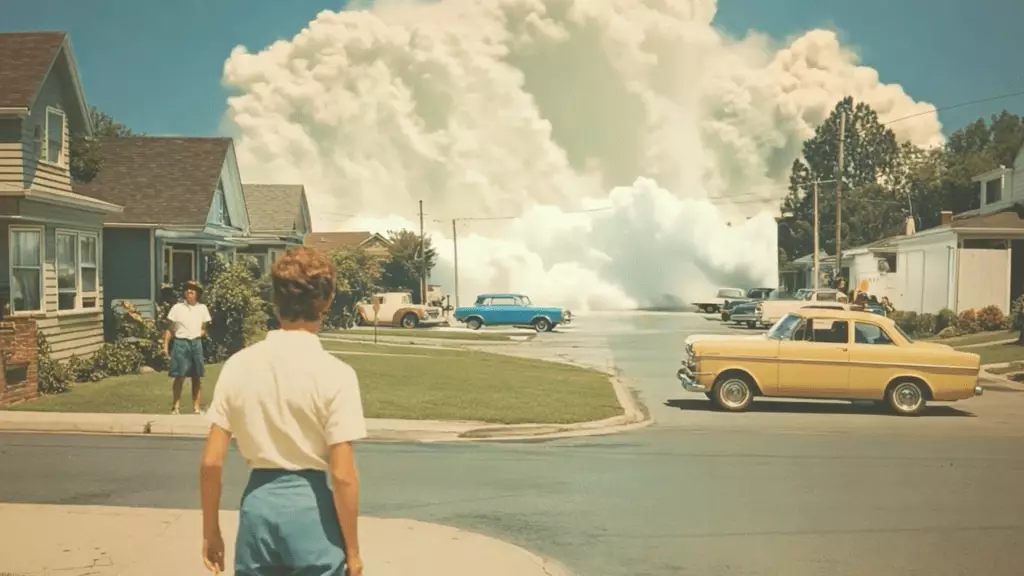In the heart of New York City, an event materialized that once felt like a distant dream, as the AI Film Festival returned stronger than ever for its third edition. The spotlight shone brightly on Jacob Adler’s mesmerizing short film, “Total Pixel Space,” which snagged the top prize. An accomplishment not just for Adler, but a bellwether for a burgeoning era of creativity influenced by artificial intelligence. This festival, hosted in the revered Alice Tully Hall of Lincoln Center, serves as a reminder of the cinematic norms being upended. With the enthralling developments in AI technology, we are witnessing a paradigm shift in the filmmaking landscape, where traditional frameworks are being overshadowed by experimental artistry powered by algorithms.
The Flood of Creativity
Runway, the tech powerhouse valued at over $3 billion, has become synonymous with this movement, channeling countless creative visions into tangible works. Cristóbal Valenzuela, the company’s CEO, delivered a stunning declaration at the festival: “This could well be the most important technological shift any of us has seen in our lifetimes.” The staggering growth in festival submissions—from a mere 300 in the inaugural year to a jaw-dropping 6,000—demonstrates the insatiable thirst for innovation in storytelling. Creators across the globe, unfettered by the weighty conventions of yesteryear, are leveraging AI not merely as a tool but as a collaborator, an enabler of spontaneous bursts of artistic expression that defy categorization.
Perhaps even more salient is the notion of serendipity that permeates this new age of filmmaking. The stories birthed from AI’s computational whimsy are vibrant and distinct, often reflecting a dreamlike quality that traditional narratives might shy away from. One could argue that filmmakers now have a license to explore the fringes of imagination without the self-imposed constraints of commercial viability or critical approval. This newfound freedom could provoke a renaissance, akin to the avant-garde movements of the past, as artists discover what lies beyond boundaries previously set by industry gatekeepers.
The Power of Collaboration
At the festival, Flying Lotus, a multi-talented artist in his own right, elucidated this liberating philosophy when he proclaimed, “I don’t like walls and boundaries and gatekeepers.” His comment resonates with the very ethos that the AI Film Festival embodies: a celebration of creativity that empowers individuals to flirt with risk and spontaneity. Filmmakers now possess the capability to “f-k around and find out,” to create freely without being shackled by predetermined ideas. This ethos breaks down the barriers that have long separated creators from the audiences they serve, merging art and technology into a symbiotic relationship.
The films showcased explored a diverse range of visuals—shards of surrealism intertwined with tangible narratives, yielding a dynamic portfolio of stories that encompass varied experiences and emotions. One noteworthy entry, “Jailbird,” directed by Andrew Salter, diverged from the prevalent abstract trends. Instead, it employed a documentary-style narrative to portray an impactful initiative that pairs prisoners with chickens, demonstrating the potential for AI to illuminate real-world issues that are often overshadowed by more avant-garde experimentation. This film exemplifies how AI can not only facilitate artistic innovation but also provide a platform for addressing pressing societal concerns.
The Impending Controversy
While the allure of AI-enhanced creativity is undeniable, it inevitably invites questions of authenticity and ethical considerations. Does the infusion of technology dilute the human element of artistry, rendering it formulaic or devoid of genuine sentiment? These inquiries linger in the air, ripe for exploration in the conversations and films yet to come. As creators embrace this digital frontier, there is an urgent need to determine how to navigate the convergence of technology and humanity in a meaningful way. Can this progressive shift coexist with traditional filmmaking practices that have laid the groundwork for cinematic storytelling? The answer remains uncertain.
In a world grappling with the transformative power of AI, the voices of filmmakers at the forefront of this revolution will shape the narrative. We are on the verge of an exhilarating chapter in the world of film, driven by innovative ideas that defy conventional wisdom. This festival serves as a lens, allowing us to glimpse the future dynamics of creativity, and while we may debate the implications of this shift, one fact stands resolutely clear: the future of storytelling is not merely being rewritten; it is being wholly reimagined.

Leave a Reply